Five Phrases to Leave in 2022
(and what to say instead)
As we head into the new year, it’s a great time to pause and reflect on our work with children.
What worked well for you this year?
What needs to be refreshed, and what do you want to be mindful of as we go into this new season?
One thing I’m always trying to improve on is my language and communication with children. I invite you to consider these five phrases that well-intentioned adults use with kids and offer some alternatives that might be worth trying out.
1. “Use your words!”
Of course we want kiddos to use their words, but here’s the thing – if they had the words to use, they’d be using them! Children don’t want to melt down any more than you do, but when they don’t have the language skills or ability to access the words in the heat of the moment, they use what they do have: hitting, screaming, running away, crying, etc.
I think about it like this: say you were just learning French, and you get stuck on something confusing. You’re getting frustrated because you can’t figure out how to get your point across, and someone who is excellent at French just keeps telling you “utilise tes mots!” (“Use your words!”) – is that at all helpful? No, it’s not.
Instead, we have to support and coach kiddos by giving them a script and modeling what words might be useful in the moment. It might sound like,
“You can say, ‘I’m not done with that. You can have a turn when I’m done.”
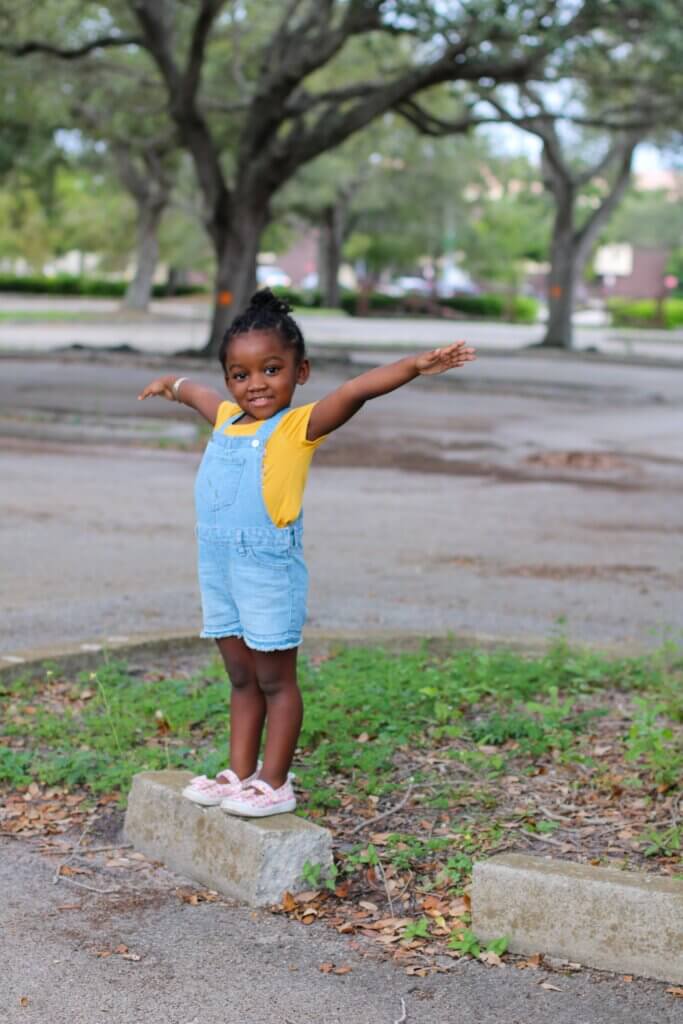
Giving a young child a script achieves two things: first, you’re teaching the child what words to use next time this happens, and you’re simultaneously advocating for the child who’s struggling by letting the other party know what’s going on. You can even do this for babies who can’t speak yet: “Be gentle with me, brother!”
Next time you find yourself about to say, “Use your words!” pause, and then you can use your own words to help!
2. “You get what you get.”
I said this all the time when I was a teacher. It’s a stand-by I hear all the time. “You get what you get, and you don’t throw a fit!” At first glance, it does seem reasonable. We don’t always get what we want, and we can’t throw fits when we don’t get exactly what we want. However, the more I think on this one, the more I think it’s invalidating and honestly, a little rude. Would you say it to an adult? A co-worker? Your spouse? I wouldn’t.
By no means am I saying we stop and give a child everything they want, but it doesn’t take any longer to speak with a little kindness and empathy. “Oh man! You love your pink cup, and your sister is using it. Bummer! Would you like the blue or purple cup this morning instead?” Or, “I see your face is looking so sad. You were hoping for a penguin bracelet, and we ran out. Would you like a butterfly bracelet, or would you like to say no thank you?” Speaking kindly keeps that connection strong.
Another great phrase to teach in this situation, “maybe next time!”
3. “Calm down!”
Has anyone ever calmed down because someone told them to “calm down!” I really don’t think so. Calming down is a real life-skill called self-regulation, and like other skills it’s something that we must teach and practice. Children start by co-regulating, and it’s very natural – we hold, comfort, and soothe a crying infant. As children grow, we still help co-regulate, and we can do this by staying close during tantrums and upsets, modeling deep breaths and other strategies, and staying calm ourselves.
As children grow older, they can do more of this on their own and move from external regulation to internal regulation. There are many calm-down strategies and many ways to teach them. An excellent tool is a positive time-in space (our friends at Generation Mindful have an awesome starter kit), or you can create your own. Remember to teach and practice these skills during calm times because we don’t learn new things when we’re dysregulated. Instead of snapping, “calm down,” take a moment to calm yourself down first, and then teach those skills so that one day, they will be able to calm themselves down!
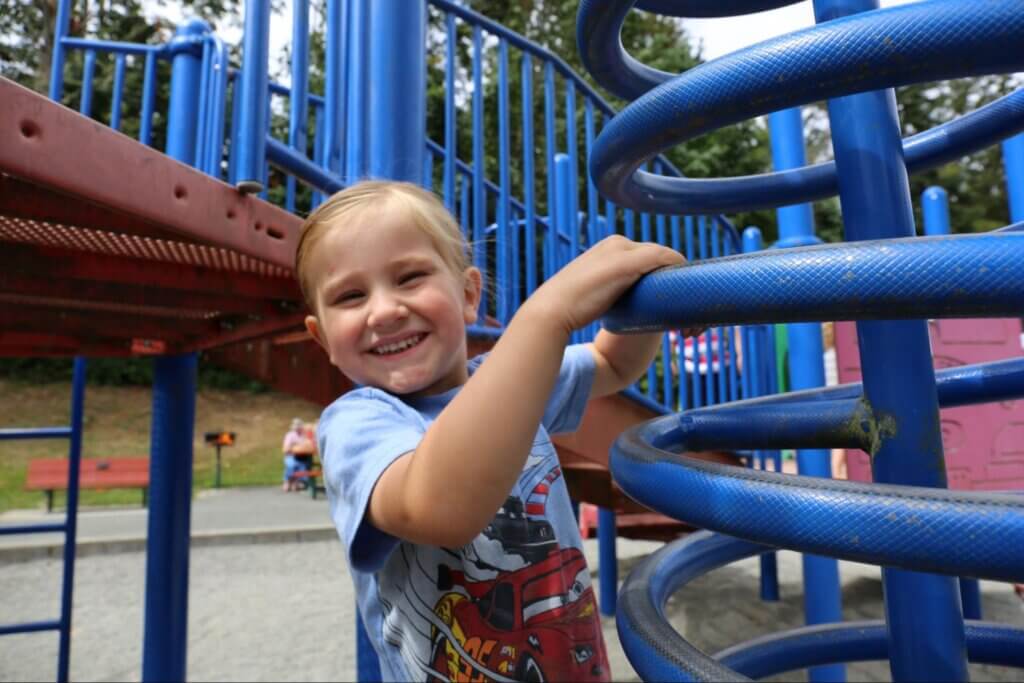
4. “Be careful!”
If you ask my nanny charges what my job is, they’ll say, “to keep us safe!” That absolutely is our number one job in childcare. So why wouldn’t we want to say, “be careful?” Several reasons. First, we could be putting our fears onto the child. Children (preschoolers and up) are typically good about listening to their body, trying things out, and knowing what is safe or not. They might be climbing higher than I care for, but if they aren’t scared, then I don’t want to burden them with my nerves. I’ve written before about the benefits of risky play even though it’s uncomfortable for us as the adult in charge.
Also, consider that “be careful!” is very vague. What does that mean to a child? What do you want them to do? Instead, ask curiosity questions that put the child into problem-solving mode. “What’s your plan to get down from there, Bud?” “Where’s your foot going to go next?” “Is your body feeling safe in that spot?” We want them to be able to figure out their next move and how to keep their body safe because there won’t always be an adult next to them.
Of course there are times when kids are genuinely being unsafe, and we want to nip that in the bud and have them take a break with us (not a time-out) to reset and let them try again!
5. “Be good!”
I know this is so well-intentioned, and part of me appreciates it when an adult reminds their child to “be good” for me, but really, what does “be good” mean? Does it mean “be obedient?” Does it mean, “use your best effort?”
“Be good” is so vague, and it also suggests a binary where children are either good or bad. Nobody is good or bad. We all make decisions and choices that have different consequences and effects. I don’t want a child to wonder if they are bad or feel like they have to be obedient to other adults in their life. Instead of “be good,” consider giving a suggestion or reminder about a specific goal, the rules of where you’re heading, or ask if they have any questions about where they’re going.
Whenever I’m dropping my nanny kiddos off somewhere, I tell them, “Your jobs today are to have fun, try hard, and listen to your grown-ups.” You could say, “I wonder where you can show kindness at school today?” or “Can you remind me what the rules are in Mrs. T’s room?” These are more concrete and meaningful than “be good!”
I know, for better or worse, that these are all phrases that have come from my mouth. If you do find yourself saying something that’s less than ideal, you can always recover by saying, “I don’t like how that sounded. I’d like to try that again.” That’s a great way to both use your new phrases and model that it’s okay to make mistakes and try again! I hope that through practicing and being intentional with my words this year, I can continue to build on my connection with my nanny kiddos.
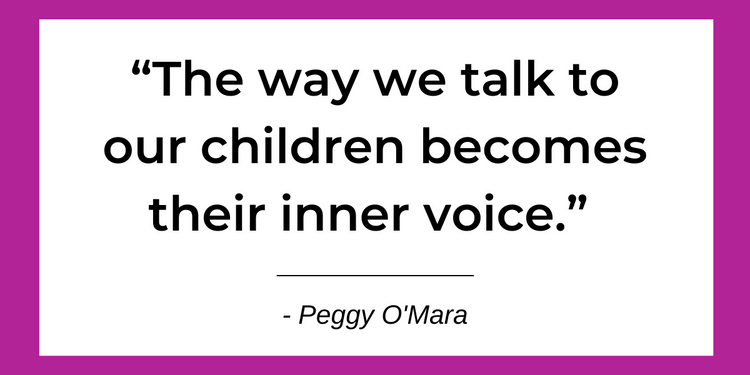


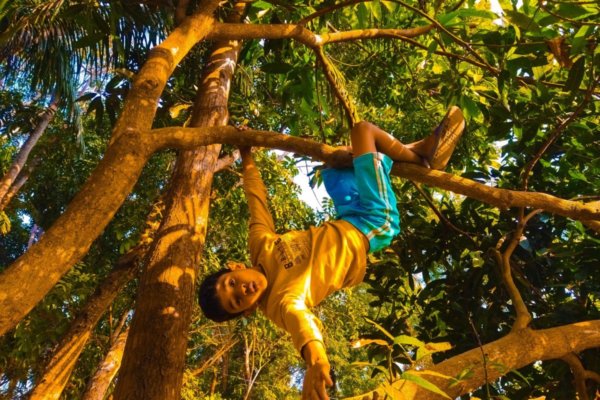

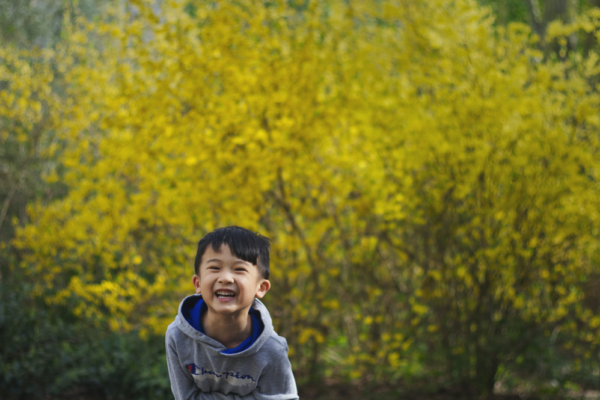
Comments